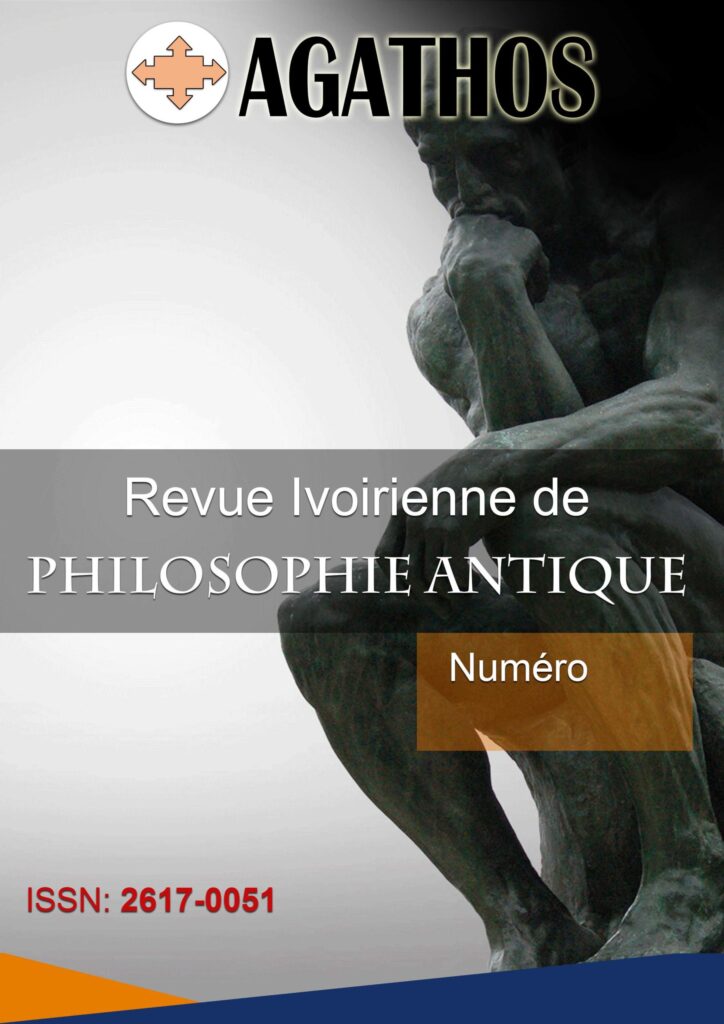
AGATHOS
ISSN-L : 2617-0051
Résumé
L’invention de la démocratie fut pour les Athéniens de l’Antiquité une fierté. Elle répondait à leur idéal de liberté qui se définissait comme le refus de se soumettre à l’arbitraire ou au pouvoir d’un seul. En effet, dans le système démocratique, le peuple est le titulaire du pouvoir politique. Mais, cette forme d’organisation politique ne fut pas exempte d’effets pervers. En valorisant la liberté d’expression, elle contribua à la culture de la rhétorique qui se mua en une démagogie ; car, les hommes politiques se contentaient de faire prévaloir leurs intérêts personnels à l’Assemblée par l’art de la parole, en séduisant le peuple ignorant afin de gagner sa faveur. Dans sa réflexion, Platon dénonce cette instrumentalisation démagogique du logos. Pour lui, le langage n’est pas un simple instrument de domination et de manipulation des foules. Il est un moyen de connaissance, d’éducation et de préservation de l’intérêt de la cité tout entière.
Abstract
The invention of democracy was for the Athenians of antiquity a pride. It responded to their ideal of freedom, which was defined as the refusal to submit to the arbitrariness or the power of one. Indeed, in the democratic system, the people are the holder of political power. But, this form of political organization was not devoid of perverse effects. By promoting the freedom of expression, it contributed to the culture of rhetoric that turned into demagogy. Because, the politicians were content to make their personal interests prevail in the Assembly by the art of speech, if not the art of seducing the ignorant people in order to win their favor. In his reflection, Plato denounces this demagogic instrumentalization of logos. For him, language is not a simple instrument of domination and manipulation of crowds. It is a means of knowledge, of education and of preservation of the interest of the whole city.
Mots-clés
Cit, Demagogy, Democracy, Freedom of expression, Logos, People, Rhetoric

Auteur(s)
Fatogoma SILUÉ
Université Alassane Ouattara silfata@gmail.com